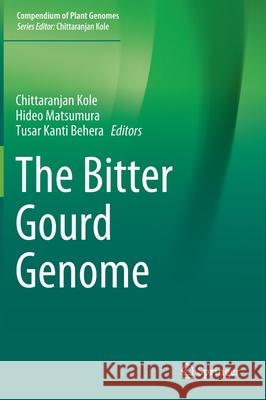The Bitter Gourd Genome » książka



The Bitter Gourd Genome
ISBN-13: 9783030150617 / Angielski / Twarda / 2020 / 135 str.
The Bitter Gourd Genome
ISBN-13: 9783030150617 / Angielski / Twarda / 2020 / 135 str.
(netto: 383,36 VAT: 5%)
Najniższa cena z 30 dni: 385,52
ok. 16-18 dni roboczych.
Darmowa dostawa!
This book focusing on the bitter gourd genome is the first comprehensive compilation of knowledge on the botany, cytogenetical analysis, genetic resources and diversity, traditional breeding, tissue culture and genetic transformation, whole genome sequencing and comparative genomics in the Cucurbitaceae family. It discusses the biochemical profile of the bioactives present in this horticultural crop, used both as a vegetable and as a medicine, and also addresses sex determination in bitter gourd. Written by respected international experts, the book is useful to students, teachers and scientists in academia, as well as seed companies and pharmaceutical industries.
1997-2026 DolnySlask.com Agencja Internetowa
KrainaKsiazek.PL - Księgarnia Internetowa









